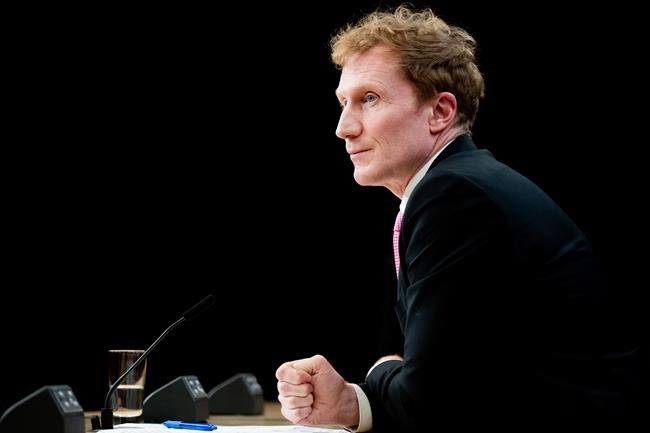TORONTO — A recently announced cap on international student visas is already creating havoc, Ontario's colleges say, and could have major implications for the province's ability to fill key jobs.
Colleges have a year-round intake of students and many are well into the application process, ready to start programs in May, the association representing the province's 24 publicly assisted colleges wrote Thursday in a statement.
"This new and unexpected administrative hurdle has resulted in total chaos for students," Colleges Ontario wrote.
"The entire system for Ontario is frozen. Students who had already been accepted into programs – and had paid their fees for those programs – are now having their applications for study permits returned to them. This is often without any explanation or way forward. This situation was entirely avoidable and is entirely arbitrary."
The imposition of an immediate requirement for a letter of attestation from the provincial government is halting all student visa processing right now because Ontario doesn't currently have such a process, the colleges said. They are calling on the federal government to delay the implementation of that requirement.
Immigration Minister Marc Miller earlier this week announced a 35 per cent reduction in the number of study permits this year, though with the total cap divided between provinces, Ontario will see its allotment of new visas cut in half.
The cap comes in response to a recent surge in international students and Miller has said it is meant to curb bad actors from taking advantage of high tuition fees while providing a poor education.
College graduates fill key labour market needs, the Ontario colleges said, in areas such as health care, advanced manufacturing, construction and early childhood education.
In 2022, a report from Ontario's auditor general said the province's schools had become increasingly dependent on tuition fees from international students, particularly after the province forced public universities and colleges to cut and then freeze tuition fees for Canadian students in 2019.
A report last year commissioned by the Ontario government recommended the province unfreeze tuition and increase funding to its post-secondary institutions. The province's funding to colleges per student is $6,891, 44 per cent of the figure for the rest of Canada, at $15,615, the panel wrote.
Ontario Colleges and Universities Minister Jill Dunlop has said she wants post-secondary institutions to "create greater efficiencies in operations."
Universities have come out against the international student cap as well. The Council of Ontario Universities has said at least 10 Ontario universities were already forecasting a combined operating deficit of $175 million this year, growing to $273 million next year.
The newly announced cap would likely increase these deficits without other measures to compensate for the revenue shortfall, the council said.
Steve Orsini, president and CEO of the organization, is calling on the federal government to reverse its decision, saying it will add more strain on institutions' budgets.
The federal and Ontario governments did not immediately provide comment.
According to commentary released Thursday by credit rating agency Morningstar DBRS, in 2010-11 tuition from international students made up seven per cent of universities' operating revenue while government funding made up 47 per cent of the revenue. In 2021-22, international students contributed 28 per cent of institutions' revenue while the share of government funding fell to 32 per cent.
Ontario has not yet acted on the government-commissioned report's recommendations, DBRS noted.
"Without a response to these challenges, the cap on international students will further add to the financial pressures that Ontario universities face and disproportionately affect those with weaker academic profiles and further reduce their already-limited revenue flexibility," the agency wrote.
This report by The Canadian Press was first published Jan. 25, 2024.
Allison Jones, The Canadian Press




